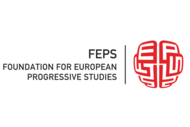Day of Progressive Economic Policy 2025
Congress | 9 April 2025 in Berlin and online | #tpw25
Uncertain global economic conditions, an industry in structural crisis and a continuing economic slump. The challenges for economic policy will remain considerable for the coming legislation. Other major challenges facing German and European policymakers include the urgent need for climate protection that works for everyone tackling rampant inequality.
But instead of bold economic policy ideas that are fit for the future, all over the world economic policy ideas from a bygone era are being brought back from the dead, putting workers, economic competitiveness and even the planet itself at risk.
Instead of looking backwards and peddling discredited dogma we are focused on progressive strategies. We need bold decisions and investments in our future. Instead of laying waste to the welfare state we will discuss a just finance policy able to guarantee our future. Instead of playing off our social achievements against the competitiveness of the European economy we’re looking for ways of ensuring decent jobs and boosting productivity, together with our partners in Europe and the world. With them we want to think economics forward.
Please note: You can find a recording of the event (German only) here.
Hans Matthöfer Prize 2025
Award ceremony within the framework of #tpw25
Find the recording here (German only).
Contact
If you have any questions, please send an e-mail to
Speakers
#tpw25 with, among others
Programme
This was our #tpw25
Thinking economics forward | Video
The entire recording of the Day of Progressive Economic Policy on April 9, 2025 in Berlin can be found in this video (German only).
A recording of the Hans Matthöfer Prize ceremony on April 8, 2025 can be found here.
Contact and Location
Questions? Get in touch!
If you have any questions concerning a barrier-free participation in the event, please contact us.
wirtschaftspolitik(at)fes.de
Venue:
Friedrich Ebert Stiftung
Building 1, Hiroshimastraße 17
Building 2, Hiroshimastraße 28
10785 Berlin
Press Enquiries:
Johannes Damian
Presse(at)fes.de
